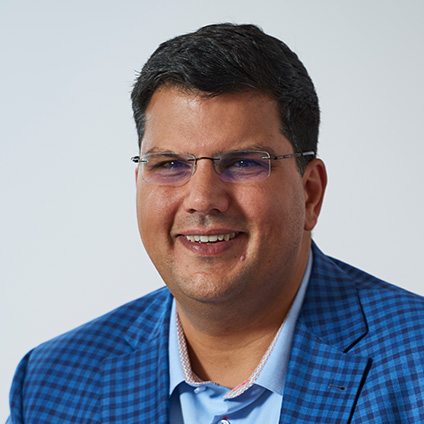Event
What We Do and Do Not Know About Developmental Dyscalculia
Daniel Ansari, PhD is a Professor and Canada Research Chair in Developmental Cognitive Neuroscience & Learning at Western University. Ansari and his team in the Numerical Cognition Laboratory explore how children develop numerical and mathematical skills and why some children struggle to acquire mathematical skills and knowledge.
About This Event
Around 5% of school-aged children present with persistent difficulties learning numerical and mathematical concepts and skills (developmental dyscalculia). Despite the well-known consequences of poor numerical and mathematical skills, research into the symptoms and causes of developmental dyscalculia significantly lags progress in the scientific study of the typical and atypical development of reading and literacy skills (developmental dyslexia). In this talk, I will discuss what is known about developmental dyscalculia by drawing on research from cognitive psychology and cognitive neuroscience. I will discuss problems associated with how children with developmental dyscalculia are diagnosed and show that there is no evidence pointing to a single cause of developmental dyscalculia. Moreover, I will discuss how developmental dyscalculia relates to other learning challenges, such as developmental dyslexia and mathematics anxiety.
Learning Objectives
- To better understand why some children struggle to learn basic numerical and mathematical concepts and skills.
- To learn about the causes and consequences of mathematical learning difficulties, such as developmental dyscalculia.
- To better understand the gaps in what we know about mathematical learning difficulties, such as developmental dyscalculia.
About the Visiting Professor Lecture Series
The Child Mind Institute Visiting Professor Lecture Series invites leaders in the field of child and adolescent mental health to talk about the latest research and treatment protocols. All events are open to the public. Continuing medical education (CME) credits for psychiatrists and continuing education (CE) credits for psychologists and social workers are available to registered course participants. Learn more.

